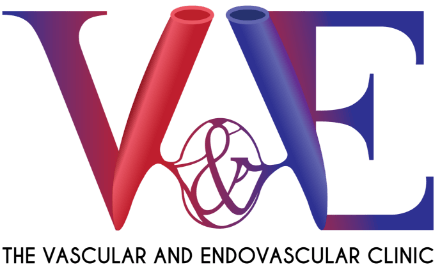Venaseal is a minimally invasive medical procedure used to treat varicose veins. It is a type of endovenous adhesive closure system that uses a medical adhesive to seal the faulty veins. The procedure involves inserting a catheter into the vein and delivering the adhesive to close the vein. Venaseal is an effective alternative to traditional vein stripping surgery and offers several benefits, including shorter recovery time and minimal discomfort.
How does Venaseal work?
Venaseal works by using a medical adhesive to seal the varicose veins. During the procedure, a small catheter is inserted into the affected vein under ultrasound guidance. The catheter delivers the adhesive directly into the vein, causing the vein walls to seal together. This closure of the vein prevents the backward flow of blood and redirects it to healthier veins nearby.
The adhesive used in Venaseal is a biocompatible material that is specifically designed for this purpose. It is gradually absorbed by the body over time. Once the affected vein is sealed, blood is rerouted through other healthy veins, and the varicose vein is eventually reabsorbed by the body.
What are the advantages of Venaseal over other current methods of treating varicose veins?
Venaseal is a minimally invasive procedure that does not require the use of heat or laser energy like other treatments for varicose veins. It offers a safe and effective option for treating varicose veins, with minimal discomfort and a shorter recovery period compared to traditional surgical methods.
Venaseal offers several advantages compared to traditional surgical methods for treating varicose veins:
- Minimally invasive: Venaseal is a minimally invasive procedure that does not require large incisions or general anaesthesia. It involves only a small catheter insertion, resulting in less trauma to the surrounding tissues.
- No heat or laser energy: Unlike some traditional surgical methods, Venaseal does not use heat or laser energy to treat varicose veins. This reduces the risk of thermal damage to the surrounding tissues and decreases the likelihood of post-procedural pain or discomfort.
- Quick and efficient: Venaseal is a relatively quick procedure that can be performed in a doctor’s office or outpatient setting. The treatment time is usually shorter compared to traditional surgical methods.
- Minimal downtime: After undergoing Venaseal, most patients can resume their normal activities immediately or within a short period of time. There is typically no need for a prolonged recovery or extensive restrictions on physical activity.
- Reduced risk of complications: Venaseal has been shown to have a low risk of complications compared to traditional surgical methods. Since it does not involve stripping or removal of the affected vein, there is a reduced risk of nerve injury, bleeding, or infection.
- Effective and long-lasting results: Clinical studies including those run from Singapore such as the ASVS registry led by Dr Tang when he was at Singapore General Hospital, have demonstrated that Venaseal is an effective treatment for varicose veins, with high rates of vein closure and symptom improvement. The results are typically long-lasting, providing lasting relief from the symptoms of varicose veins.
In terms of symptom relief, Venaseal has been found to significantly reduce or eliminate symptoms such as pain, heaviness, swelling, and fatigue associated with varicose veins. Patients often experience improved quality of life and increased comfort after undergoing Venaseal treatment. Recent data published from the ASVS at 3 years showed sustained improvement in quality of life and clinical effectiveness in Asian patients treated with Venaseal alone for varicose veins.
What factors can affect the effectiveness of Venaseal in treating varicose veins?
- Severity of varicose veins: The extent and severity of varicose veins can impact the effectiveness of Venaseal treatment. In general, Venaseal is more effective for treating smaller to moderate-sized veins. Large and tortuous veins may require alternative treatment options.
- Underlying medical conditions: Certain medical conditions, such as deep vein thrombosis (DVT) or peripheral artery disease (PAD), can affect the overall success of Venaseal treatment. It’s important to assess and address any underlying conditions before proceeding with Venaseal therapy.
- Anatomy and vein structure: The anatomy and structure of the affected veins can influence the success of Venaseal treatment. Veins that are difficult to access or have complex branching patterns may require additional expertise or alternative treatment approaches.
- Patient compliance: Patient compliance with post-procedural care instructions is crucial for the success of Venaseal treatment. Following the vascular surgeon’s advice regarding physical activity, compression stockings, and other recommendations can greatly enhance the effectiveness of the procedure.
- Individual response to treatment: Every individual responds differently to medical interventions. While Venaseal has shown high success rates overall, individual variations in healing and tissue response may affect the final outcome.









